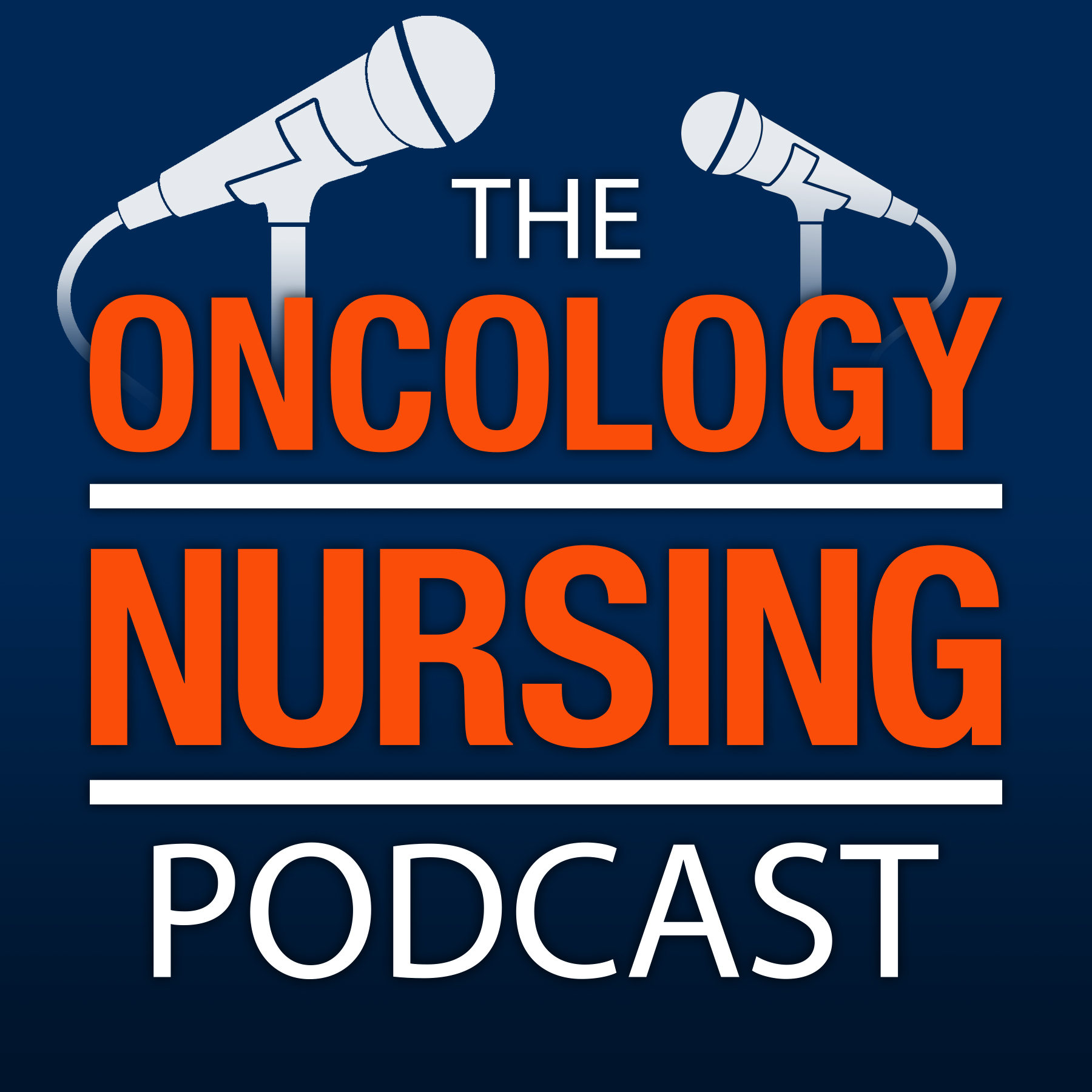
Episode 242: Oncology Pharmacology 2023: Today’s Treatments and Tomorrow’s Breakthroughs

The Oncology Nursing Podcast
Shownotes Transcript
“It’s incumbent on us as nurses to stay informed about these newly approved drugs or new indications in drugs because we’re the front line in helping these patients manage adverse events,” Teresa Knoop, MSN, RN, AOCN®, nurse consultant in Nashville, TN, told Jaime Weimer, MSN, RN, AGCNS-BC, AOCNS®, oncology clinical specialist at ONS, during a conversation about the latest updates and approvals in oncology pharmacology. You can earn free NCPD contact hours after listening to this episode and completing the evaluation linked below.
Music Credit: “Fireflies and Stardust)” by Kevin MacLeod
Licensed under Creative Commons by Attribution 3.0
Earn 1 contact hour of nursing continuing professional development (NCPD) by listening to the full recording and completing an evaluation at myoutcomes.ons.org by January 13, 2025. The planners and faculty for this episode have no relevant financial relationships with ineligible companies to disclose. ONS is accredited as a provider of NCPD by the American Nurses Credentialing Center’s Commission on Accreditation.
Learning outcome: Participants will report an increase in knowledge related to the latest updates and approvals in oncology pharmacology.
Episode Notes
Complete this evaluation for free NCPD).
Oncology Nursing Podcast Episode 126: Oncology Clinical Trials and Drug Development)
ONS Voice articles:
S. Food and Drug Administration (FDA) updates)
Predictive and Diagnostic Biomarkers: Identifying Variants Helps Providers Tailor Cancer Surveillance Plans and Treatment Selection)
Help Patients Understand Biomarker Test Results and Clinical Trials Options)
Use ClinicalTrials.gov to Find the Right Cancer Research Studies for Your Patients)
ONS Genomics and Precision Oncology Learning Library)
ONS Immuno-Oncology Learning Library)
ONS Oral Anticancer Medication Learning Library)
ONS Biosimilars Learning Library)
ONS Seal of Approval Library)
Clinical Journal of Oncology Nursing article: Clinical Trials: Nursing Roles During the Approval Process and Pharmacovigilance of Biosimilars)
FDA resources:
Drug development and approval process)
Oncology/hematologic malignancies approval notifications)
Ongoing cancer accelerated approvals)
Verified clinical benefit cancer accelerated approvals)
Withdrawn cancer accelerated approvals)
Project Renewal)
Biosimilars review and approval)
Drug Information Soundcast in Clinical Oncology (D.I.S.C.O.))
Project Livin’ Label)
Oncology Center of Excellence)
To discuss the information in this episode with other oncology nurses, visit the ONS Communities).
To provide feedback or otherwise reach ONS about the podcast, email [email protected]).
Highlights From Today’s Episode
“Full approval through the Center for Drug Evaluation and Research (CDER) and FDA means that those drugs have gone through the laboratory testing, human clinical trial testing, and very extensive clinical trials to make sure that they are effective and that the benefits of those drugs outweigh the risks.” TS 02:28
“In 1992, CDER established a new program that would help these drugs get expedited, particularly in life-threatening or serious diseases like cancer. So they established an accelerated approval pathway for these promising therapies. They were hoping to shorten that period of time, and a number of our cancer-fighting drugs have come onto the market through this accelerated approval pathway.” TS 04:29
“When a drug gets an FDA approval, whether it be accelerated or final, then typically they get approved for one, possibly two indications on that first approval. But there are clinical trials ongoing in other diseases and in other indications. So we will then see drugs—after those clinical trials are conducted—taken to CDER for approval for that new indication.” TS 24:02
“The exciting thing for our patients is that new indications often treat more advanced cancers in which you discover a biomarker and could give patients potential treatment options when other options may have been exhausted.” TS 27:43
“It’s incumbent on us as nurses to stay informed about these newly approved drugs or new indications in drugs because we’re the front line in helping these patients manage adverse events. Many of these drugs are designed so patients have to stay on them for extended periods of time, or at least they get the greatest benefit by staying on it for extended periods of time. Our patient education is key in helping patients do that.” TS 34:50
“In 2023, I think we will continue to see many new drugs that are approved. We will see new indications. I think particularly we will continue to see cellular therapy agents developed—we’ll see them gain new indications. I would be willing to forecast that we’re going to see more and more of specific immunomodulatory drugs or those antibody drug conjugates)—all of those drugs that are designed to treat the cancer in a couple of different ways.” TS 37:29